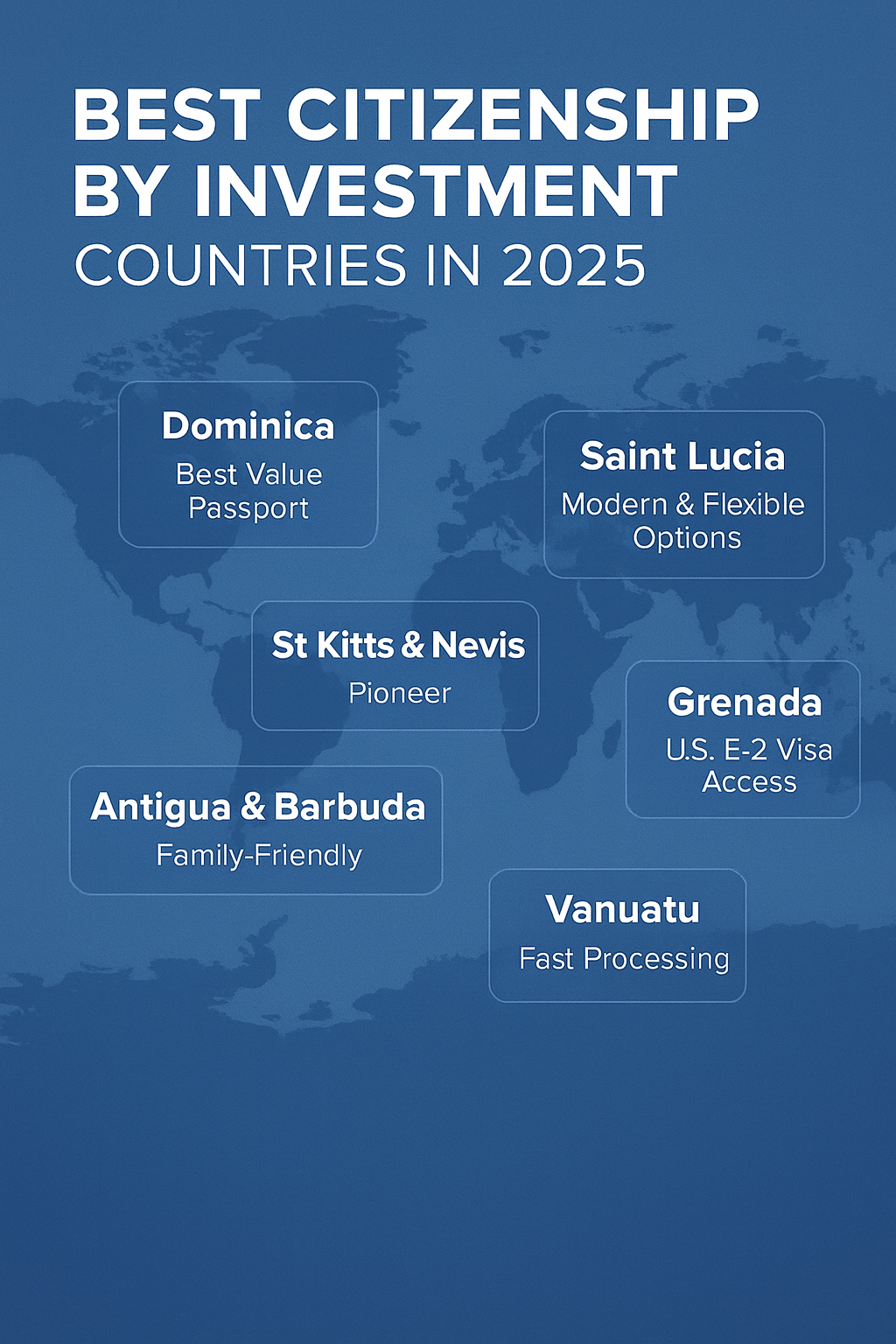
Residency Vs. Citizenship By Investment: What's The Difference And Why It Matters
Residency vs. Citizenship by Investment: What's the Difference and Why It Matters
In an increasingly globalized world, high-net-worth individuals are looking beyond borders—not just for travel, but for security, lifestyle, and opportunity. That’s where residency and citizenship by investment programs come in. While they may seem similar on the surface, the benefits and commitments behind each are quite distinct. Understanding those differences can help you choose the right path for your future.
What Is Residency by Investment?
Residency by investment—often referred to as a Golden Visa—grants individuals and their families the right to live, study, and sometimes even work in a specific country, usually in exchange for a qualifying investment in real estate, government bonds, or local businesses. But residency doesn’t make you a citizen and you only receive a residence permit, not a passport.
Countries such as Greece, Portugal, and Spain offer some of the most well-known Golden Visa programs in Europe, attracting investors with relatively low entry thresholds, streamlined application processes, and family-friendly terms.
What About Citizenship by Investment?
Citizenship by investment is a much broader commitment—and a bigger reward. These programs offer full citizenship, including a passport, the right to vote, and often visa-free access to over 140 countries.
The Caribbean is a popular region for this option. Nations like St. Kitts & Nevis, Dominica, and Antigua & Barbuda have designed programs that combine efficiency with value. In some cases, applicants can obtain citizenship in as little as three to six months, without needing to reside in the country at all.
So, Which One Is Right for You?
It depends on your goals. If you’re planning to relocate or spend significant time abroad, residency may be the best fit. These programs often require a lower investment and offer a pathway to citizenship after a number of years.
On the other hand, if your priority is to gain global mobility, long-term security, or a second passport as a backup plan and generational legacy, citizenship might be worth the higher upfront cost.
Here's a quick side-by-side breakdown:
|
Feature |
Residency by Investment |
Citizenship by Investment |
|
Legal status |
Temporary or permanent residence |
Full citizenship |
|
Passport |
No |
Yes |
|
Voting & political rights |
No |
Yes |
|
Travel benefits |
Limited (e.g. Schengen) |
Global, often 140+ visa-free countries |
|
Investment range |
From €12,000 |
Typically $200,000 and up |
|
Processing time |
1–6 months |
3–12 months |
|
Residency requirement |
Sometimes required |
Often not required |
Key Takeaways
• Residency by investment is ideal if you want flexibility, lower investment, or a long-term plan to move abroad.
• Citizenship by investment is best suited for those seeking a second passport, greater mobility, or legacy planning for their family.
Both paths offer meaningful advantages—and increasingly, investors are using one as a stepping stone to the other. Before making a decision, it’s crucial to understand the legal, financial, and tax implications of each route. Work with trusted professionals, stay updated on policy changes, and consider your long-term personal and financial goals.
For more information, contact our World Gate consultants for a free consultation now.




